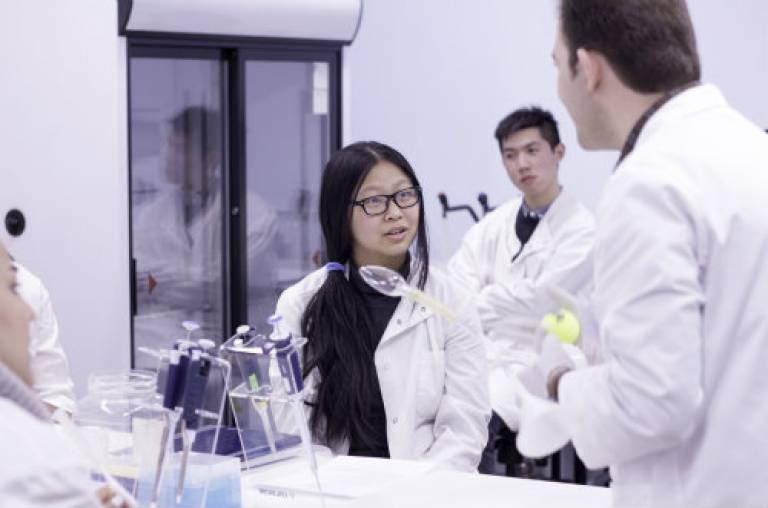'Meet Your Lecturer': personal tutoring with a difference
The ‘Meet Your Lecturer’ scheme has been successfully incorporated into the personal tutoring scheme in many departments across UCL.

20 August 2015
The Structural and Molecular Biology department have a subtly different approach.
Rather than meeting and interviewing a lecturer, the tutor gives their tutees a tour of their laboratory and introduction to their research. Dr Lawrence Bellamy explains.
Students tour research labs
Structural and Molecular Biology department have an interesting take on the ‘Meet Your Lecturer’ concept and the personal tutor system.
As part of their first year key skills (which is worth 0 units), students are given a tour of the research lab where their personal tutor works.
This has to be completed within the first two terms of the academic year. A typical tour would last half an hour.
The tutor talks to their students about what the lab does, the equipment they use, the skills researchers develop through working in their lab and the wider implications of their work.
Providing context from day one
The scheme is new and was introduced this year. It is hoped that this puts the students’ degree in some sort of context right from their first year.
It also puts students into a research lab straight away.
Previously, the first time Biochemistry students entered a research lab was their third year and students found this a very intimidating experience.
It also did not give students at the start of their undergraduate career an accurate reflection of what UCL does or is about.
By introducing 1st year students to the lab from the start it is hoped that it would be a less intimidating environment come their third year.
Benefits for personal tutors
There are other additional advantages to this. First it does not take up any extra time for the personal tutor.
This is because the lab tour counts as one of the five compulsory personal tutor meetings required for first year undergraduates. Indeed, it can be sold as saving the personal tutor time.
This is because they can show all their personal tutees in one go, saving time because they do not need to meet their students individually. Another advantage is that it introduces students to the people who work in a research lab, such as PhD students and post-docs. This gives them some idea of the career pathway in science and shows that science does not involve working in isolation.
This is a productive use of time normally dedicated to personal tutor meetings. Based on the success of this scheme, it is going to be adopted by the Biosciences department and we believe it can be easily adopted across other departments at UCL.
 Close
Close

